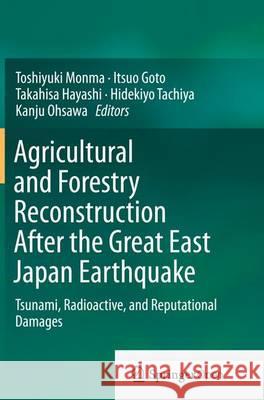Agricultural and Forestry Reconstruction After the Great East Japan Earthquake: Tsunami, Radioactive, and Reputational Damages » książka
topmenu
Agricultural and Forestry Reconstruction After the Great East Japan Earthquake: Tsunami, Radioactive, and Reputational Damages
ISBN-13: 9784431562801 / Angielski / Miękka / 2016 / 264 str.
Agricultural and Forestry Reconstruction After the Great East Japan Earthquake: Tsunami, Radioactive, and Reputational Damages
ISBN-13: 9784431562801 / Angielski / Miękka / 2016 / 264 str.
cena 201,72
(netto: 192,11 VAT: 5%)
Najniższa cena z 30 dni: 192,74
(netto: 192,11 VAT: 5%)
Najniższa cena z 30 dni: 192,74
Termin realizacji zamówienia:
ok. 22 dni roboczych
Bez gwarancji dostawy przed świętami
ok. 22 dni roboczych
Bez gwarancji dostawy przed świętami
Darmowa dostawa!
Kategorie:
Kategorie BISAC:
Wydawca:
Springer
Język:
Angielski
ISBN-13:
9784431562801
Rok wydania:
2016
Wydanie:
Softcover Repri
Ilość stron:
264
Oprawa:
Miękka
Wolumenów:
01











